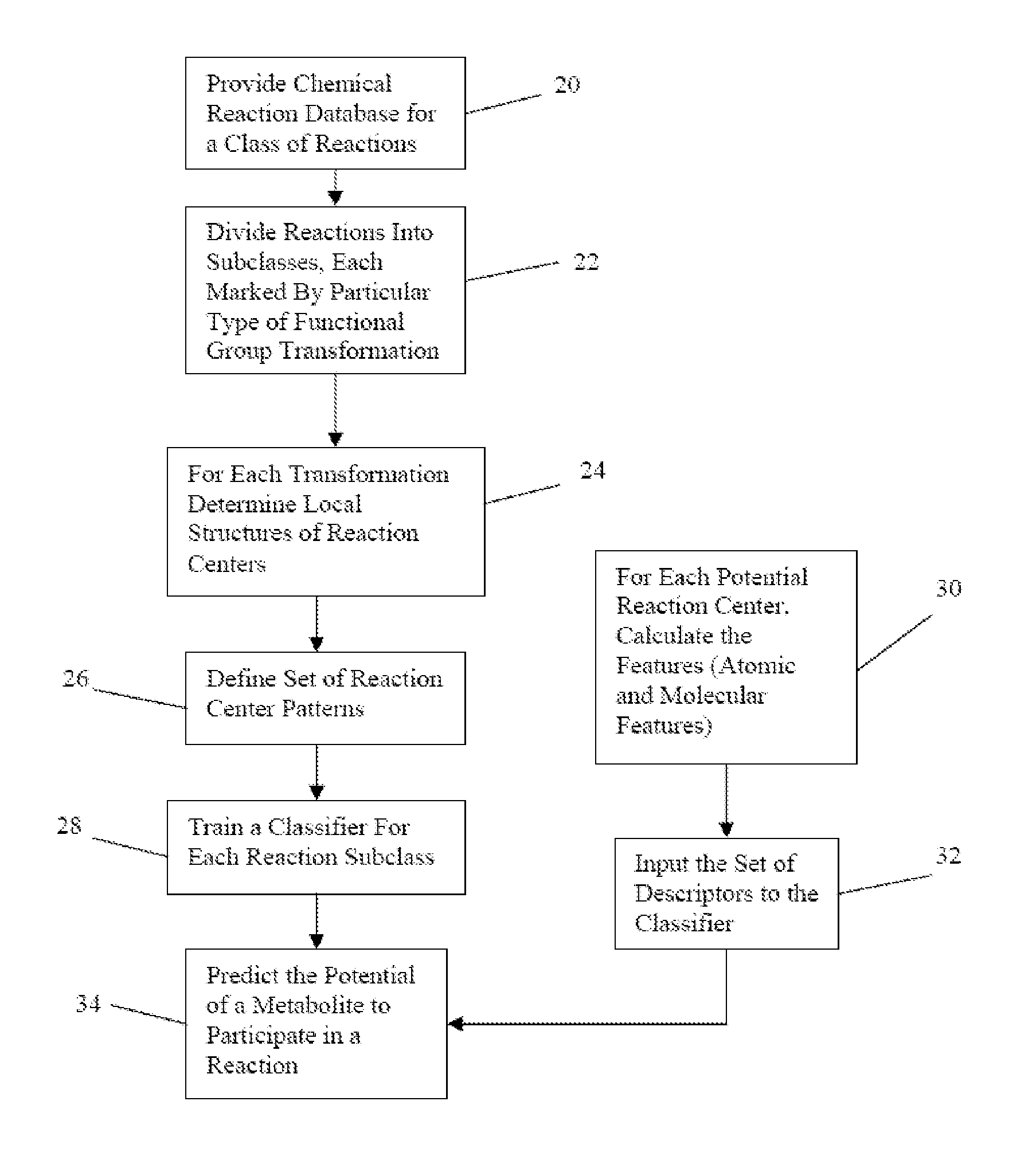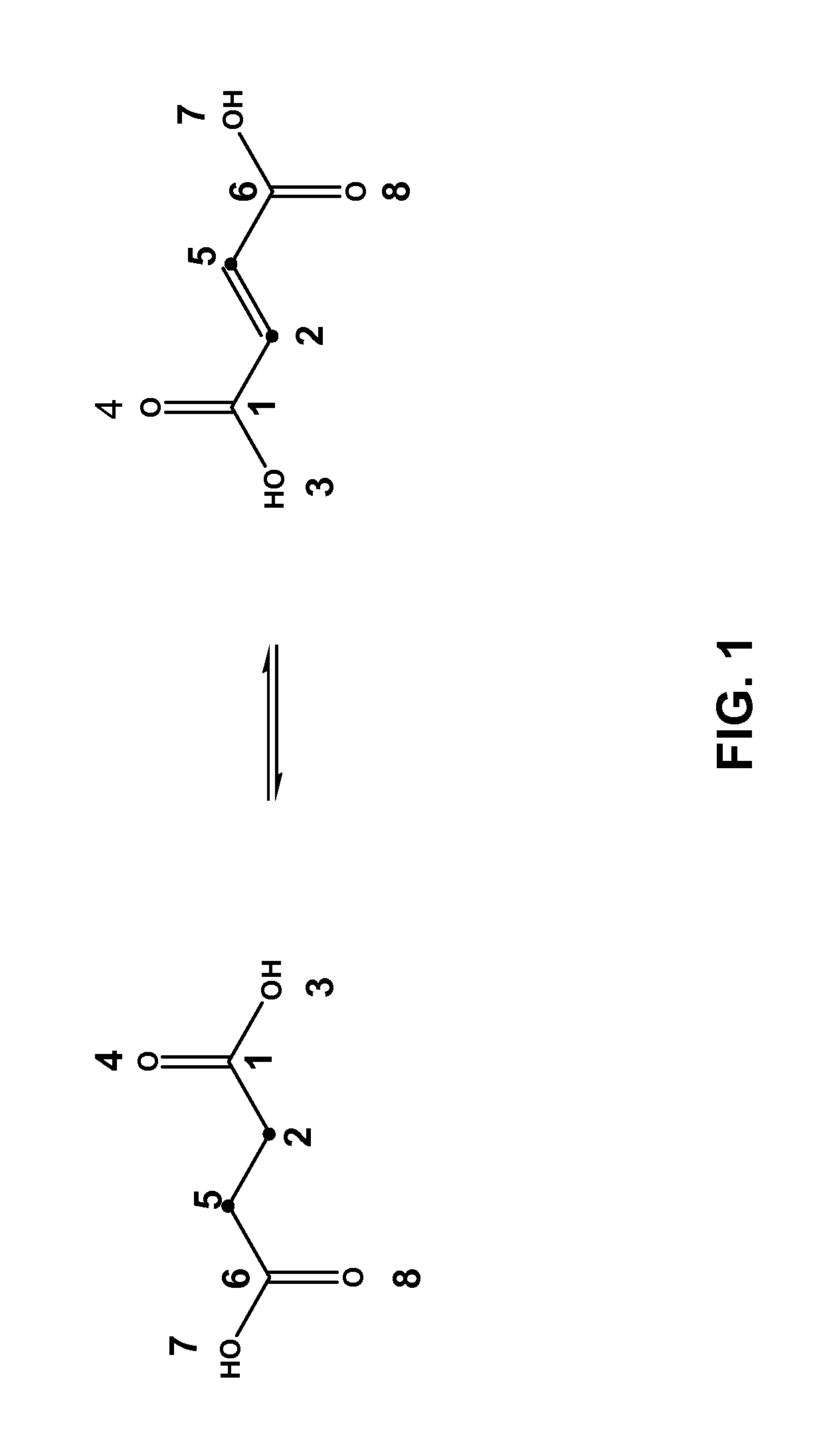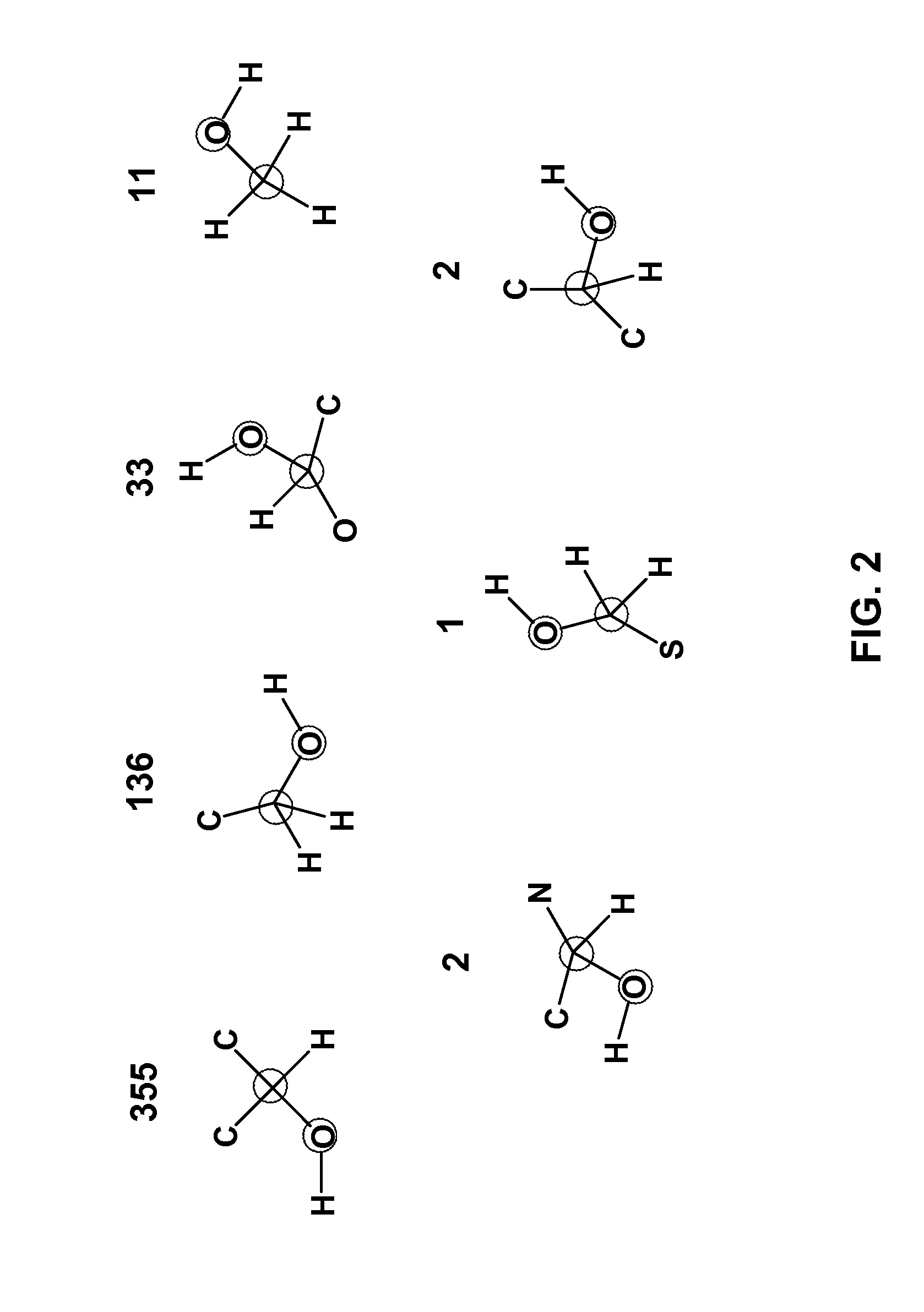Method for predicting enzyme-catalyzed reactions
- Summary
- Abstract
- Description
- Claims
- Application Information
AI Technical Summary
Benefits of technology
Problems solved by technology
Method used
Image
Examples
Embodiment Construction
[0031]Referring more specifically to the drawings, for illustrative purposes the present invention is embodied in the data, chemical structures, flowcharts and system diagrams generally shown in FIG. 1 through FIG. 9. It will be appreciated that the method may vary as to sequence and details of the steps and as to specific data used, and the apparatus may vary as to configuration and as to details of the parts, without departing from the basic concepts as disclosed herein.
[0032]The invention applies to the assessment of the reactivity of given metabolites using features to model the atoms in the reaction centers and features to model the whole molecule. Metabolic reactions are represented as biotransformation rules. These rules are generalized from the patterns in reactions. These patterns are not unique to reactants but are widely distributed among metabolites. Using a metabolite database, such as KEGG and MDL's Metabolite®, potential substructures are identified in the metabolites...
PUM
 Login to View More
Login to View More Abstract
Description
Claims
Application Information
 Login to View More
Login to View More - R&D
- Intellectual Property
- Life Sciences
- Materials
- Tech Scout
- Unparalleled Data Quality
- Higher Quality Content
- 60% Fewer Hallucinations
Browse by: Latest US Patents, China's latest patents, Technical Efficacy Thesaurus, Application Domain, Technology Topic, Popular Technical Reports.
© 2025 PatSnap. All rights reserved.Legal|Privacy policy|Modern Slavery Act Transparency Statement|Sitemap|About US| Contact US: help@patsnap.com



